


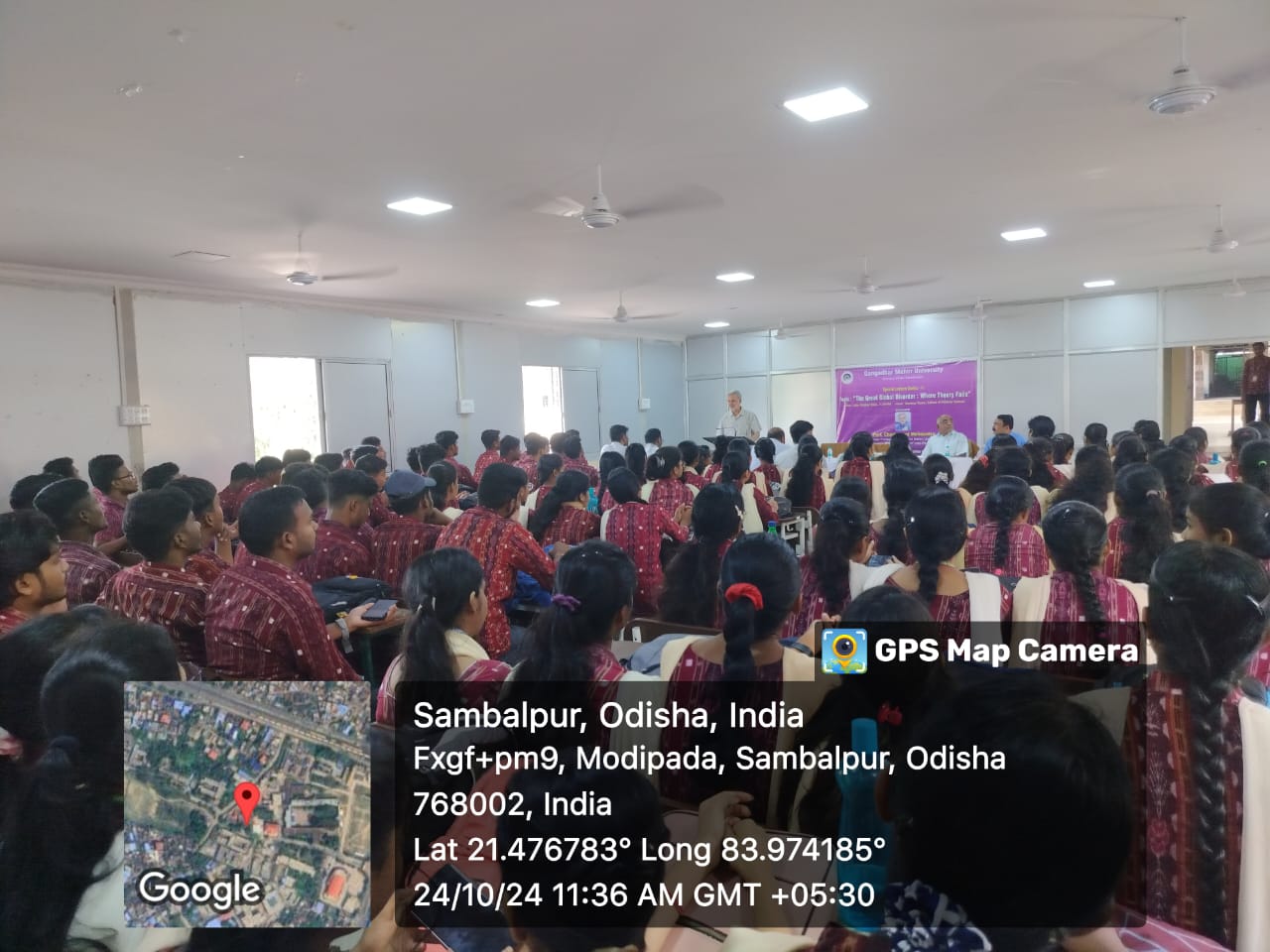 Date: 24/10/2024
Date: 24/10/2024 The "Special Lecture" was organised by the School of Political Science to understand the limitations of existing political theories in addressing the dynamic nature of politics, national interests, and evolving global context. Prof. Chintamani Mahapatra was the Chief speaker who delivered his talk related to this topic.
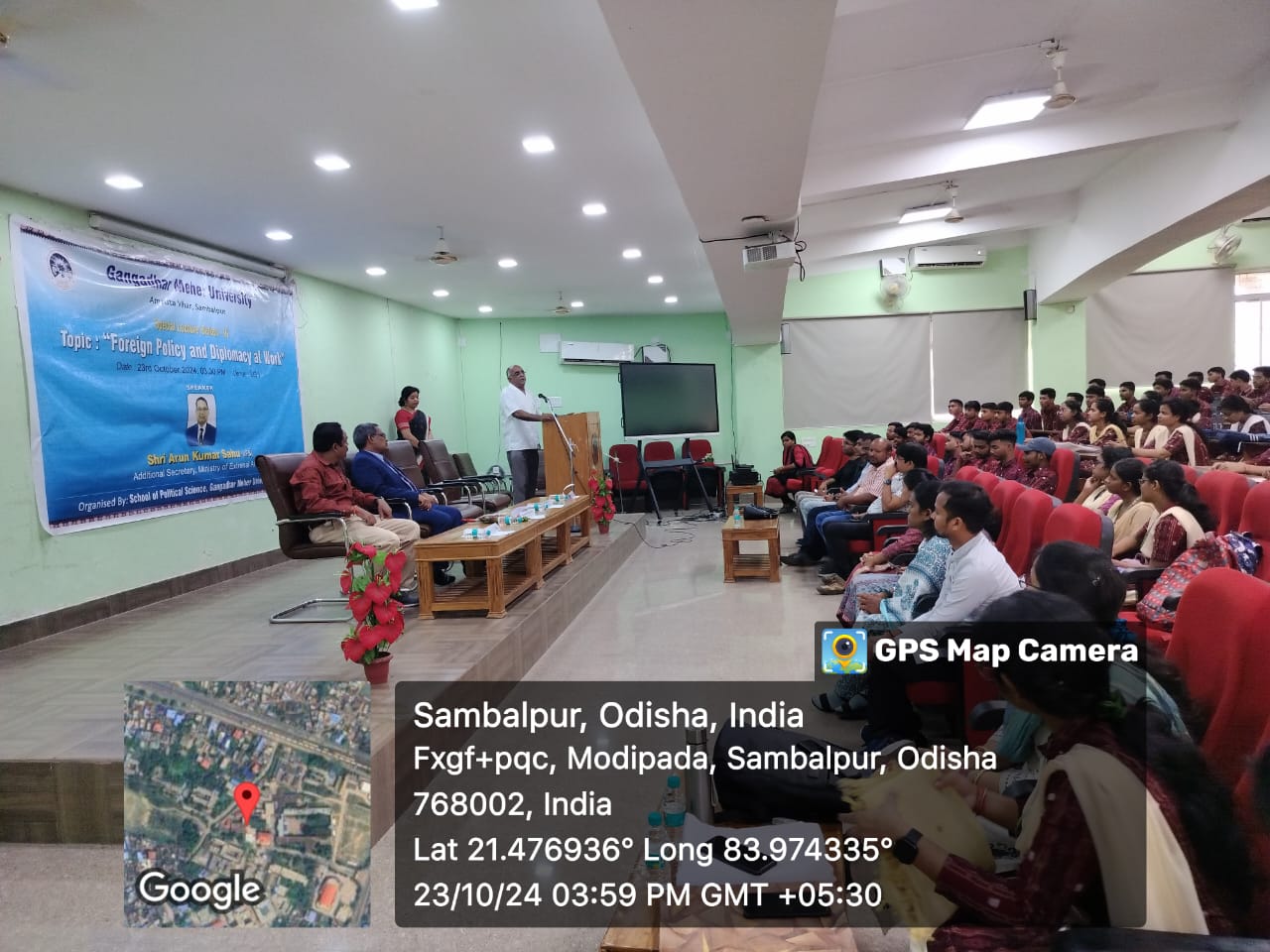 Date: 23/10/2024
Date: 23/10/2024 The "Special Lecture" was organised by the School of Political Science to understand the impact of political regimes on diplomacy and foreign relations, stressing how shifts in governance and ideological frameworks can alter a nation's approach to foreign policy. Shri Arun Kumar Sahu was the Chief speaker who delivered his talk related to this topic.
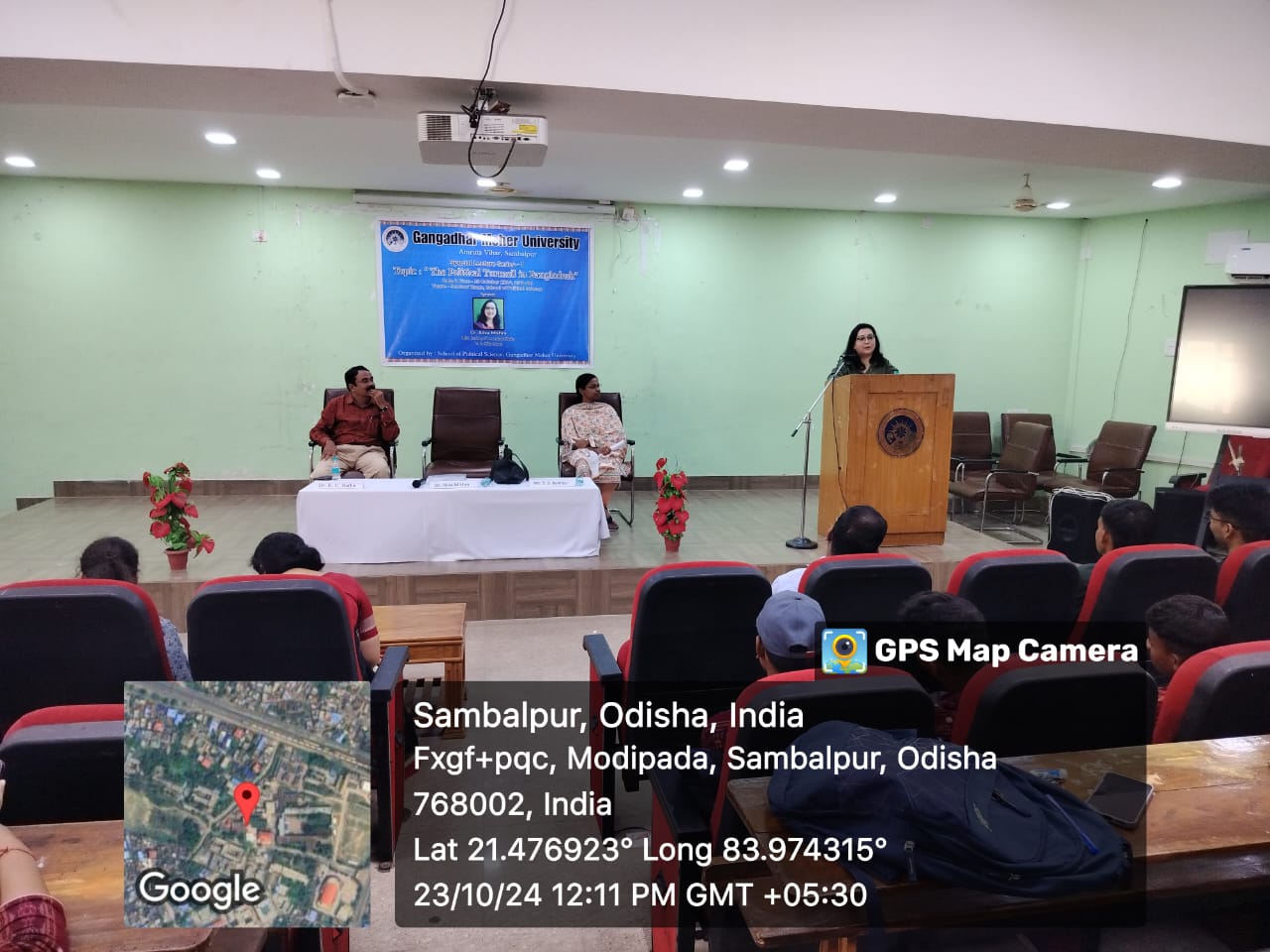 Date: 23/10/2024
Date: 23/10/2024 The "Special Lecture" was organised by the School of Political Science to understand the evolving political role of Prime Minister Sheik Hasina. Dr. Aliva Mishra was the Chief speaker who delivered her talk related to this topic.
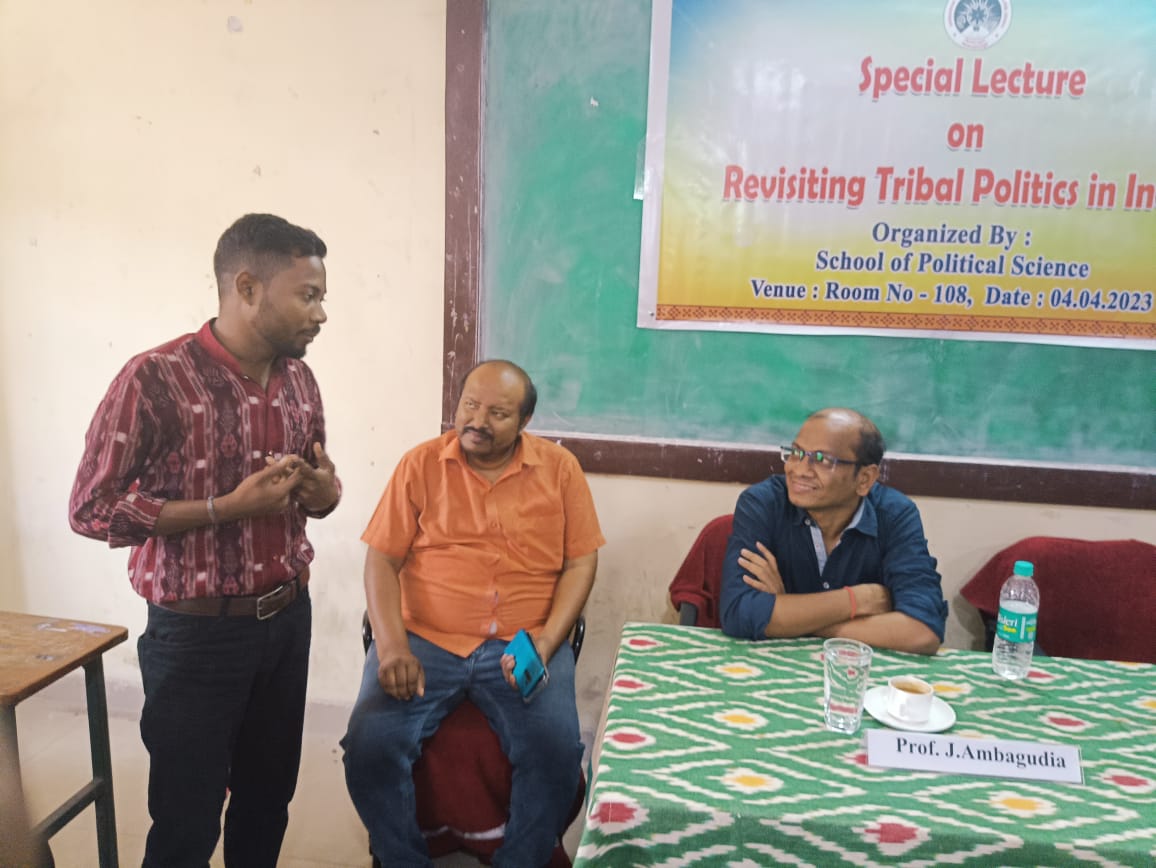 Date: 04/04/2023
Date: 04/04/2023 Conducting a special lecture on "Revisiting Tribal Politics in India" offered an opportunity to critically analyse the dynamics, challenges, and prospects of tribal politics in the country.Prof. Jagannath Ambagudia was the Chief speaker of this programme. Through this programme he provided an overview of tribal political representation at various levels of governance, including the Lok Sabha, state assemblies, and local bodies. He discussed the challenges faced by tribal communities in accessing political power, including issues of marginalization, identity politics, and electoral representation.
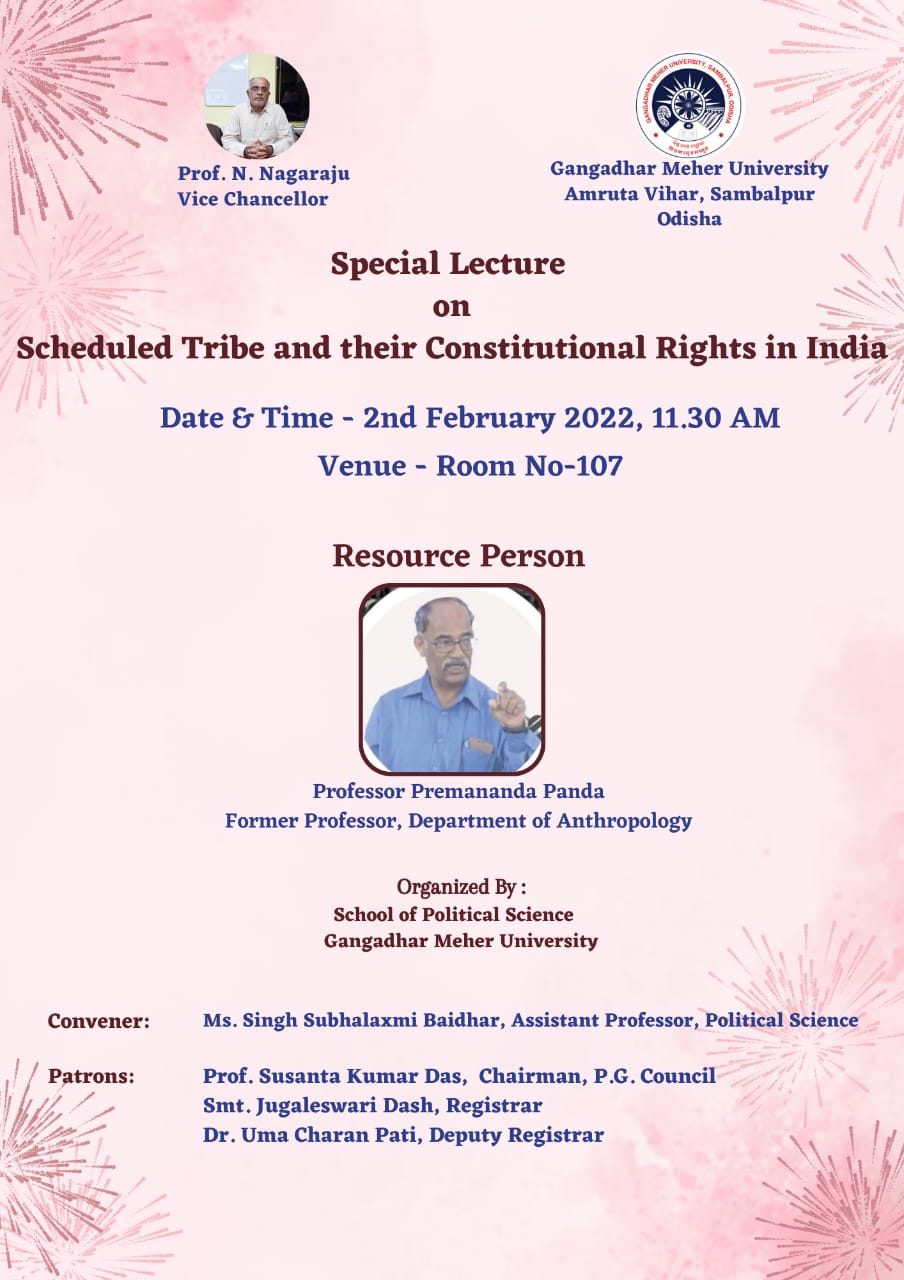 Date: 02/02/2023
Date: 02/02/2023 Conducting a special lecture on the constitutional rights of Scheduled Tribes (STs) in India was crucial for raising awareness about their rights, empowering community members, and promoting social justice.Prof.Premananda Panda was the Chief speaker of this programme. He provided an overview of the socio-economic, cultural, and political issues faced by Scheduled Tribes in India, including land alienation, displacement, marginalization, and lack of access to education, healthcare, and basic amenities.He highlighted the historical context of tribal rights struggles and the role of constitutional provisions in addressing past injustices and promoting tribal welfare.
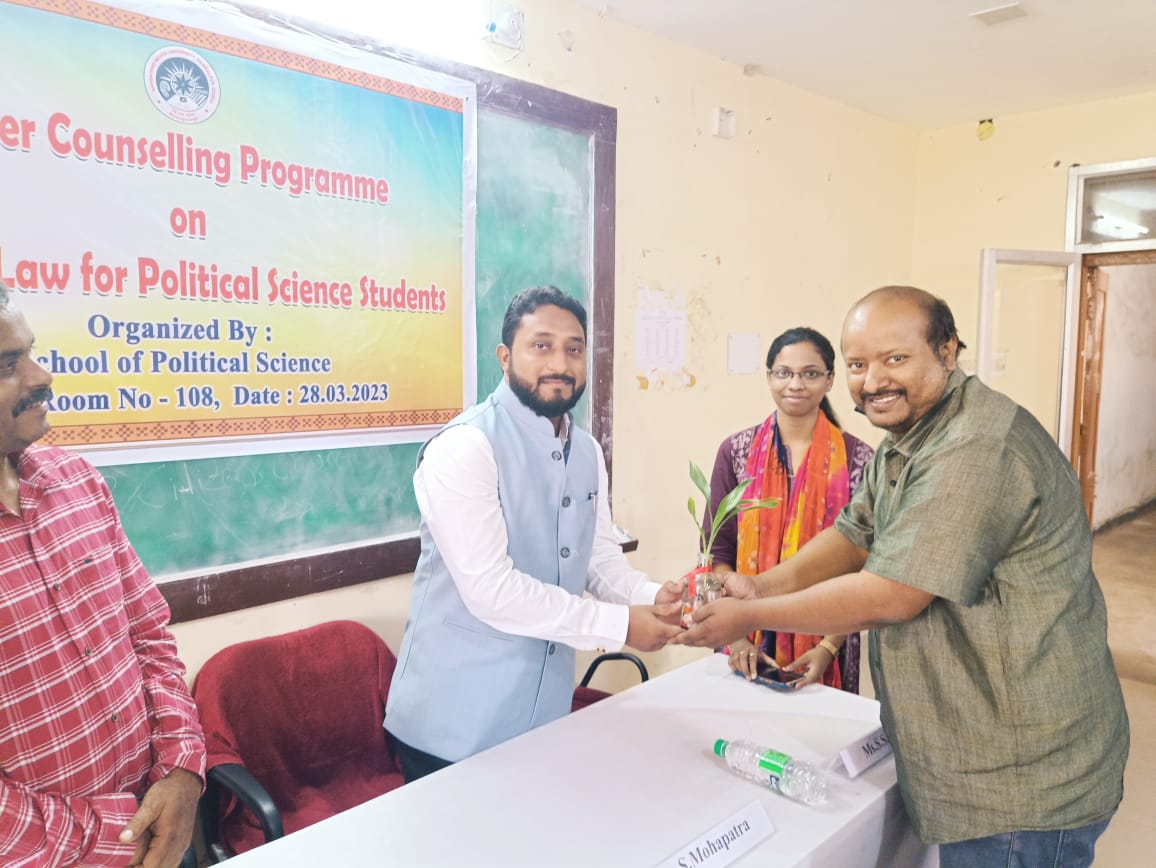 Date: 28/03/2023
Date: 28/03/2023 Conducting a career counseling programme on careers in law specifically tailored for Political Science students could provide valuable guidance and insights into the legal profession. Advocate Sabyasachi Mohapatra was the Chief speaker of this programme. He emphasised on the service-oriented professions that aim to serve society.
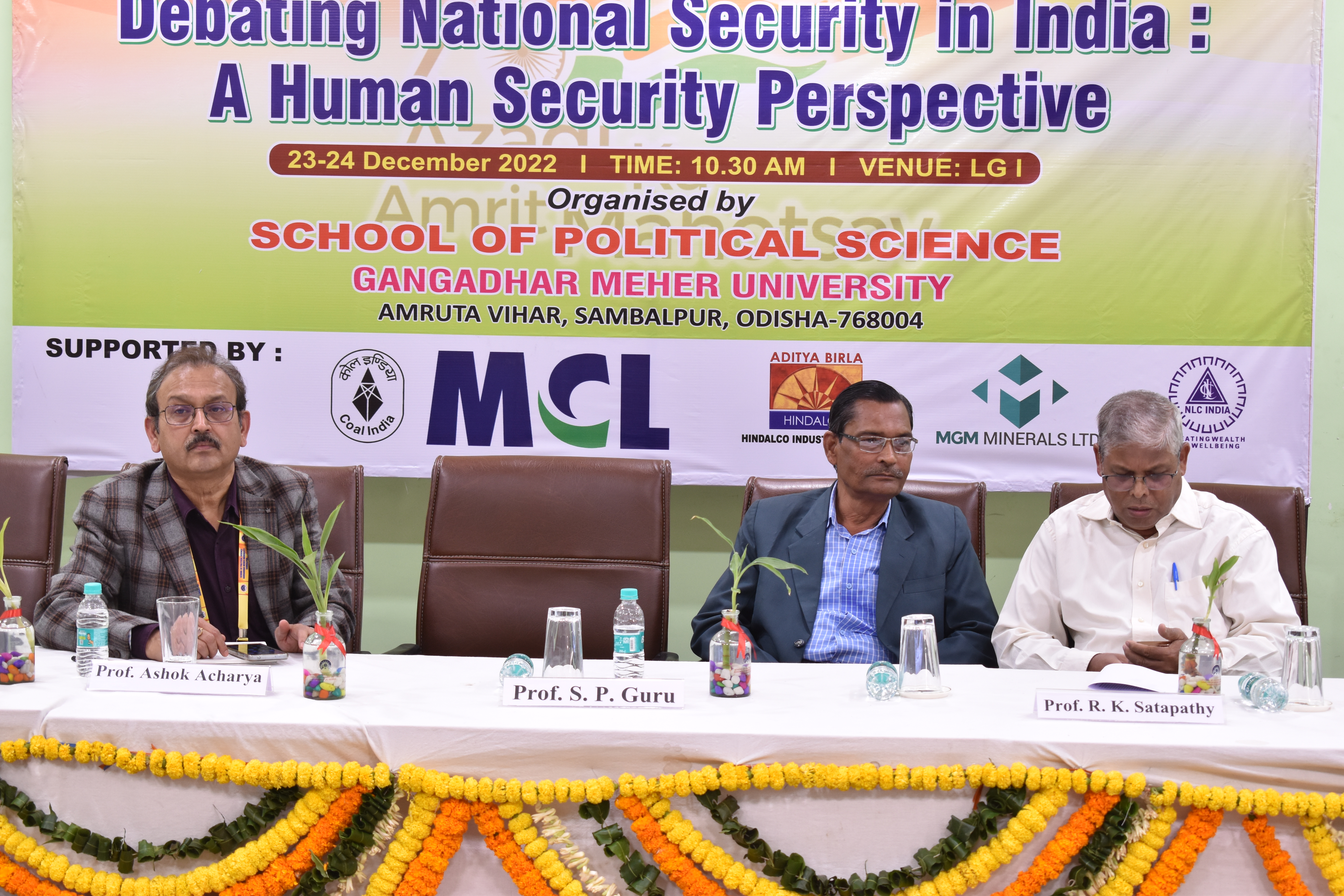 Date: 23/12/2022
Date: 23/12/2022 Organizing a national seminar on "Debating National Security in India: A Human Security Perspective" provided a sound platform to explore the multifaceted dimensions of security beyond traditional military paradigms
 Date: 28/08/2022
Date: 28/08/2022 Implementing a Village Extension Programme (VEP) in Kudgunderpur village, Sambalpur, involved a comprehensive approach to community development and capacity-building. � Conducted a thorough needs assessment in Kudgunderpur village to identify the socio-economic, health, educational, and infrastructural needs of the community. � Engaged with community members, local leaders, and stakeholders through surveys, focus group discussions, and interviews to gather insights into their priorities and aspirations.
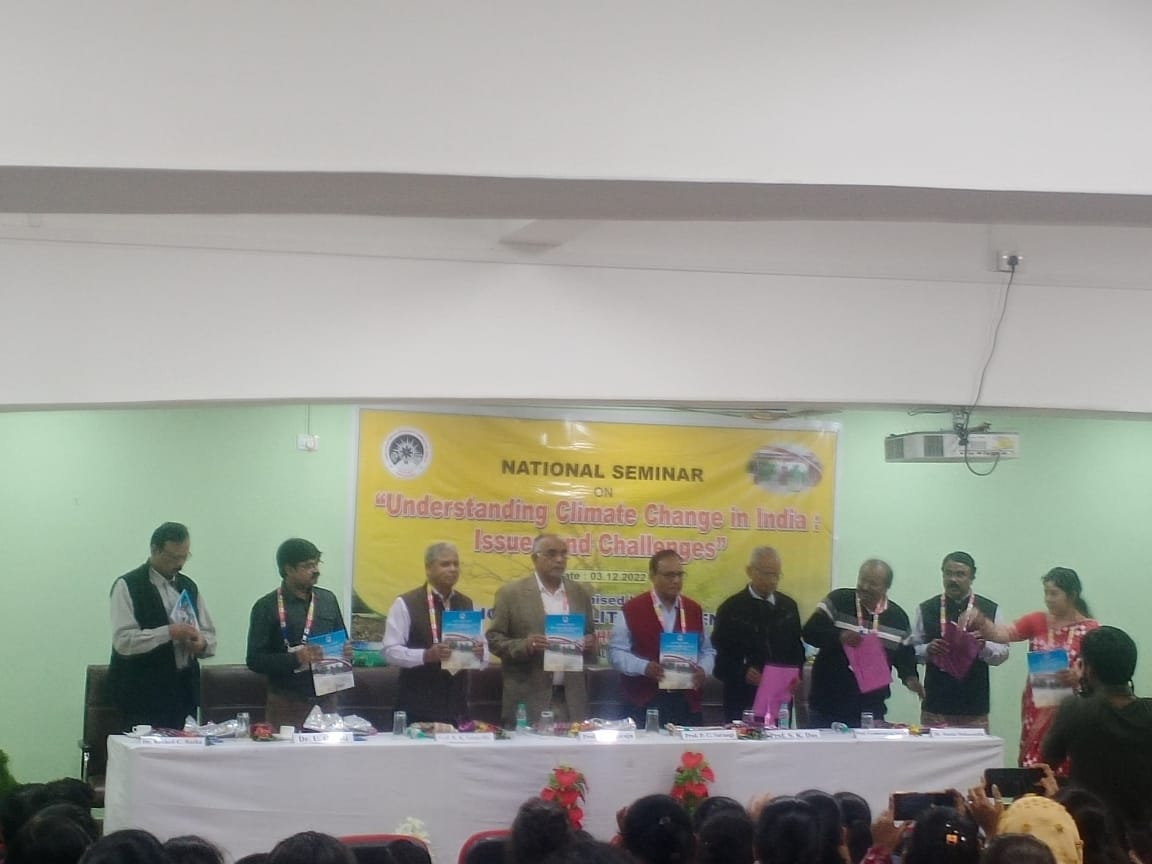 Date: 03/12/2022
Date: 03/12/2022 A National Seminar on Understanding Climate Change in India: Issues and Challenges could able to provide a platform to discuss the specific impacts of climate change on India and explore strategies for mitigation and adaptation.
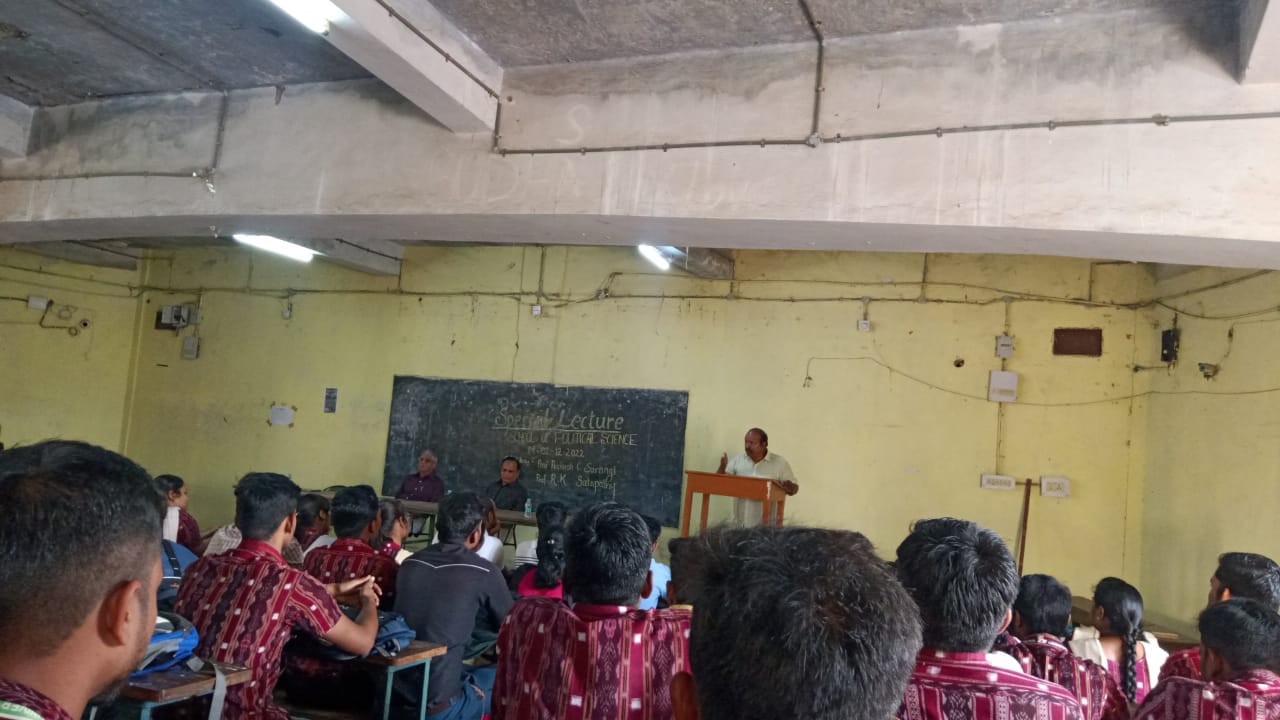 Date: 02/12/2022
Date: 02/12/2022 Hosting a special talk on civil society could provide valuable insights into the role, challenges, and contributions of civil society organizations (CSOs) in shaping societies and advancing social change.
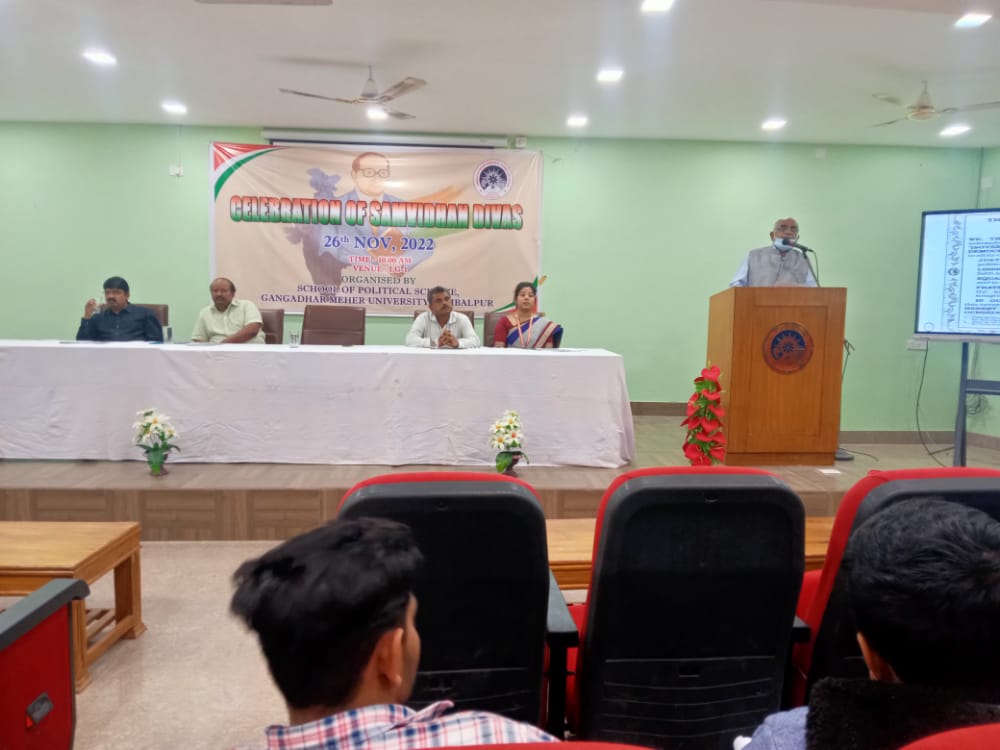 Date: 26/11/2022
Date: 26/11/2022 Observing "Sambidhan Diwas" or Constitution Day on January 26th is indeed a significant way to honor and commemorate the adoption of the Constitution of India in 1950.
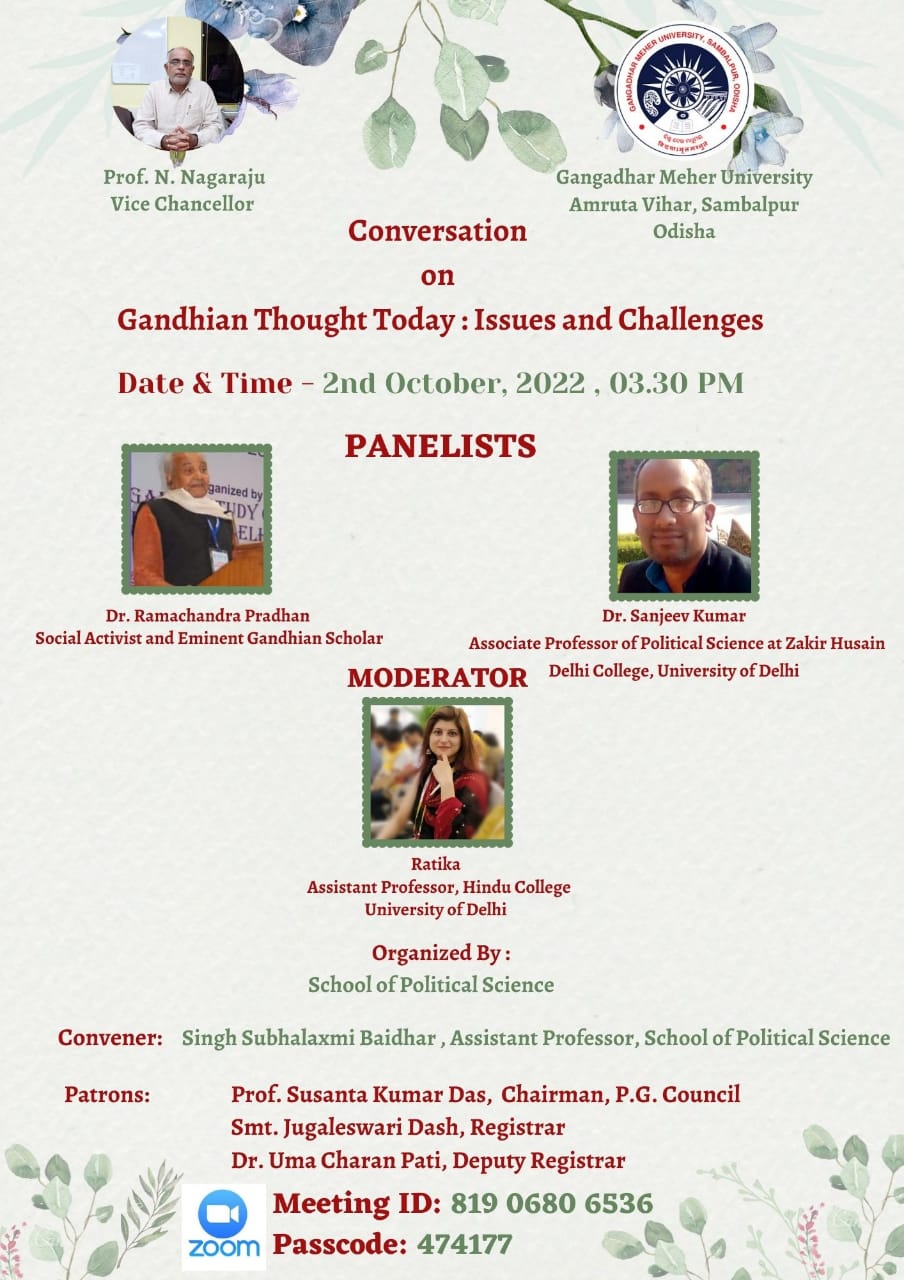 Date: 02/10/2022
Date: 02/10/2022 A webinar on "Gandhian Thought Today: Issues and Challenges" was in fact an insightful exploration of the relevance of Mahatma Gandhi's principles in the contemporary world
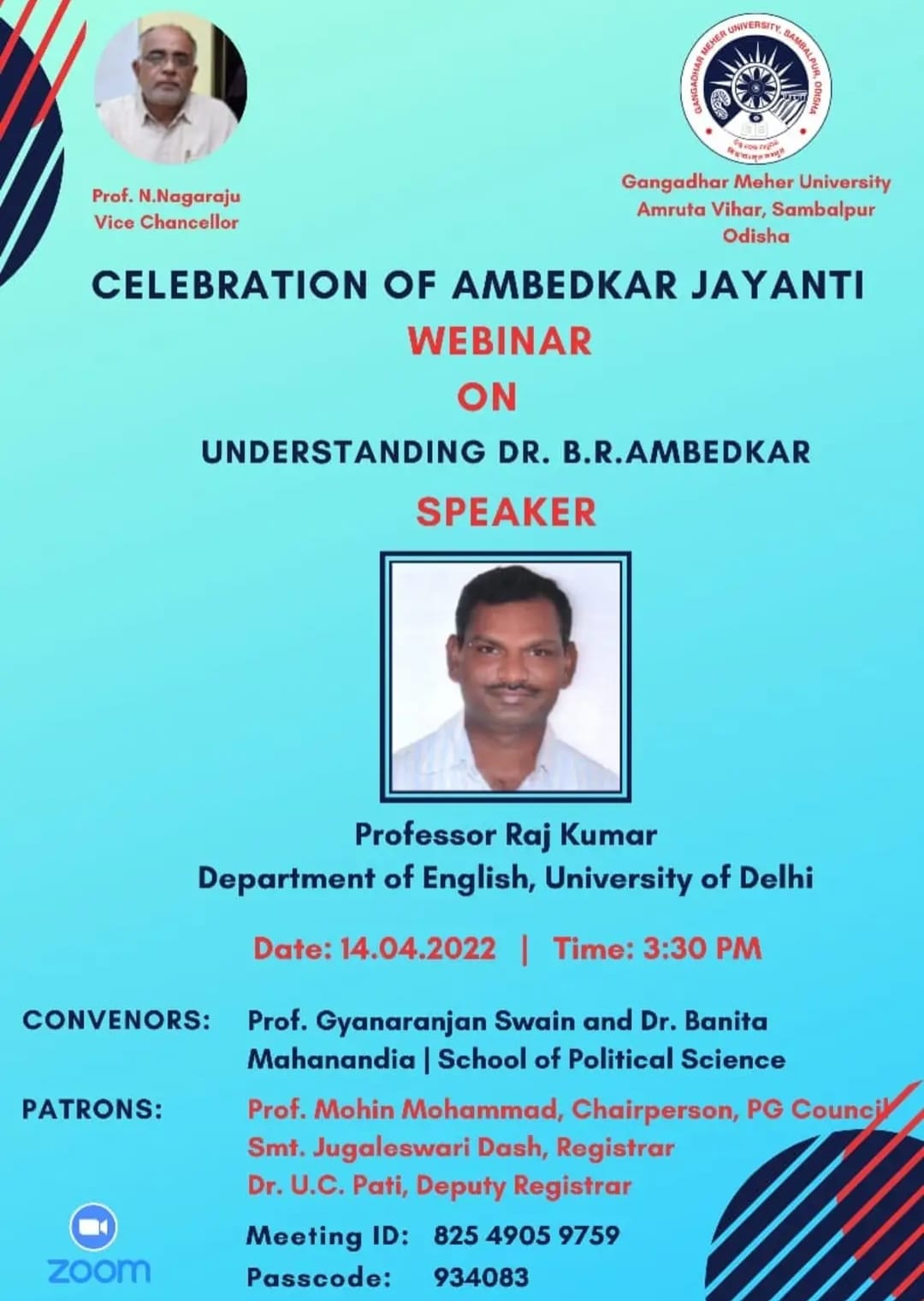 Date: 14/04/2022
Date: 14/04/2022 A national webinar on "Understanding Ambedkar" could give a significant opportunity to explore the life, work, and legacy of Dr. B.R. Ambedkar, a towering figure in India's social and political history.
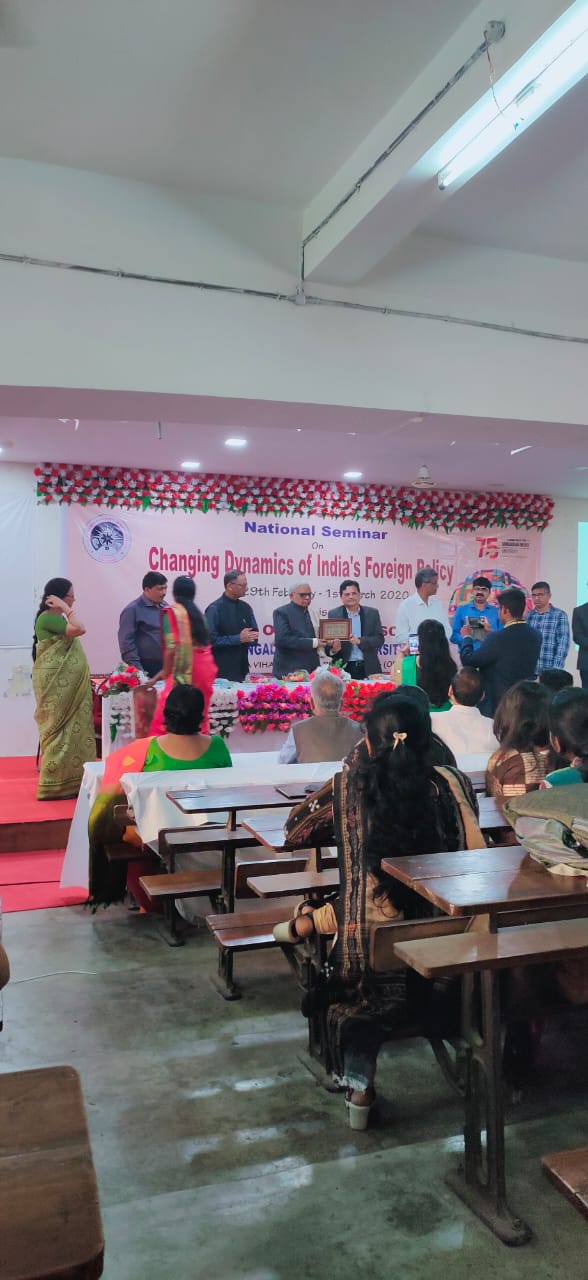 Date: 29/02/2020
Date: 29/02/2020 A national seminar focused on the "Changing Dynamics of India�s Foreign Policy" was a significant platform for examining and discussing the evolving nature of India's approach to international relations. Such an event could delve into various aspects of India's foreign policy, including its strategic priorities, diplomatic engagements, economic partnerships, and security concerns.
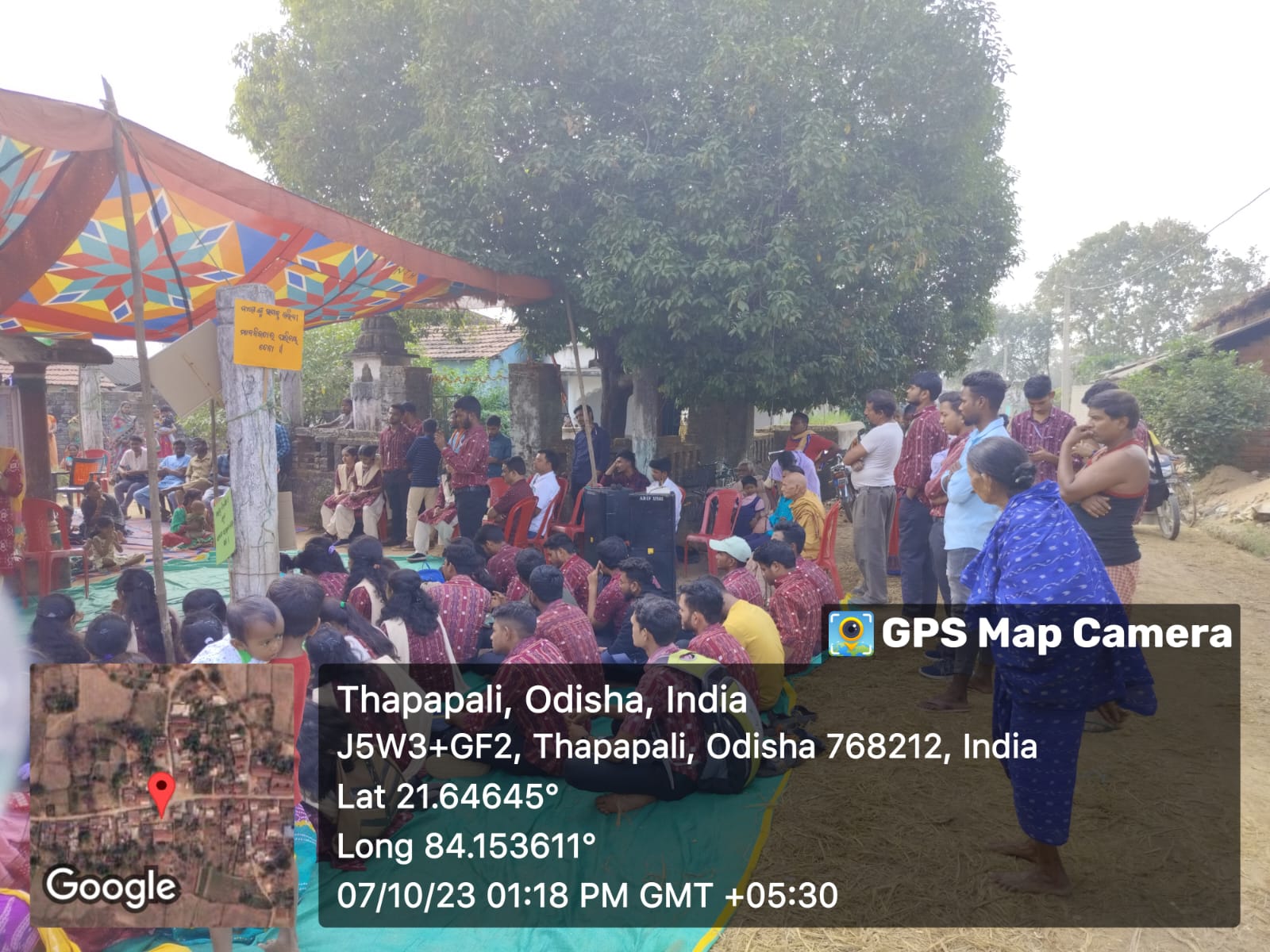 Date: 07/10/2023
Date: 07/10/2023 Implementing an extension program on voter awareness campaign in Thapapali of Rengali Block could involve a comprehensive approach to educate and empower the community about the importance of voting and active participation in the democratic process.
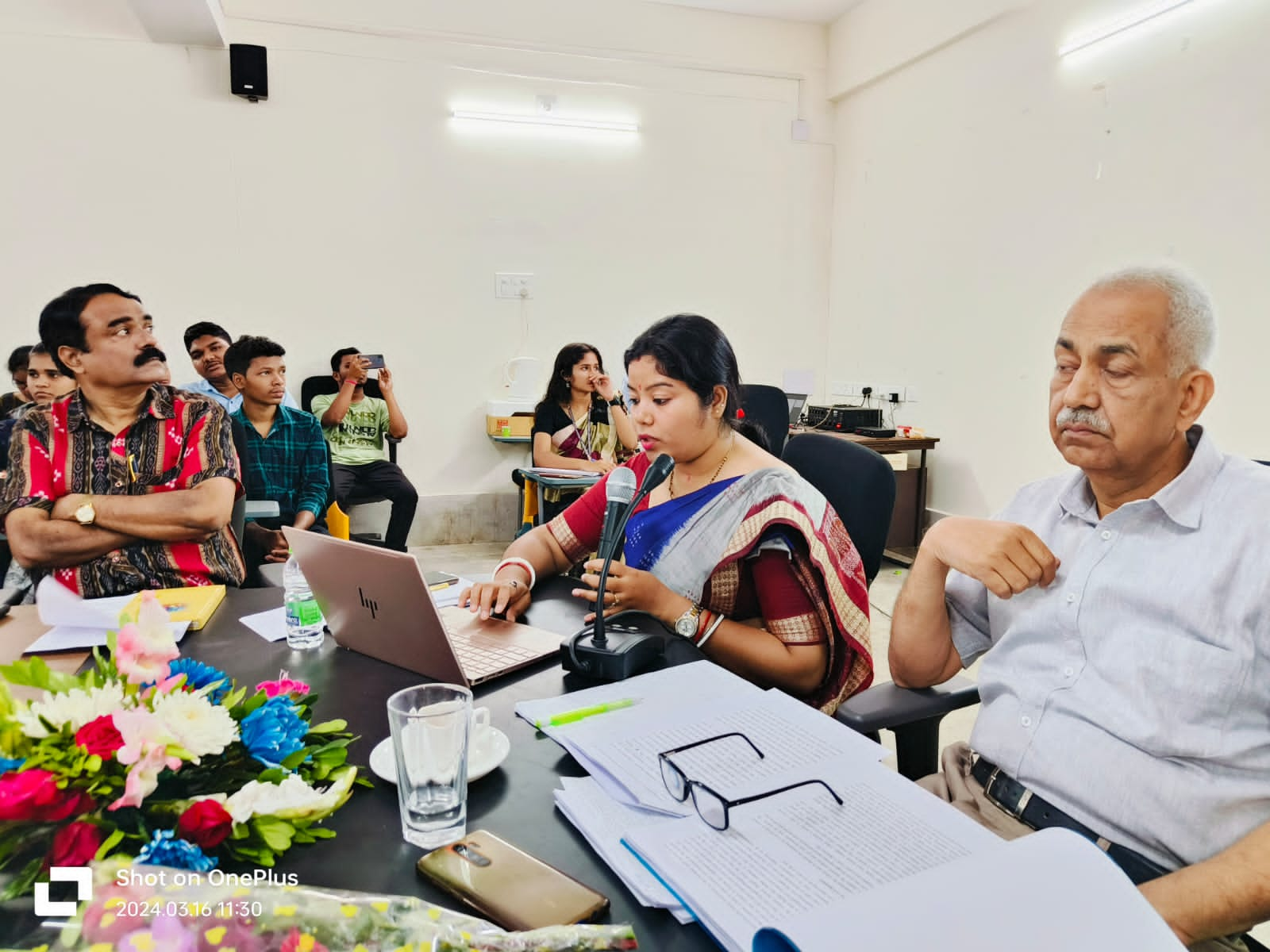 Date: 16/03/2024
Date: 16/03/2024 This workshop was organised to understand the relevance of the Beti Bachao Programme, especially in Odisha and Chhattisgarh.
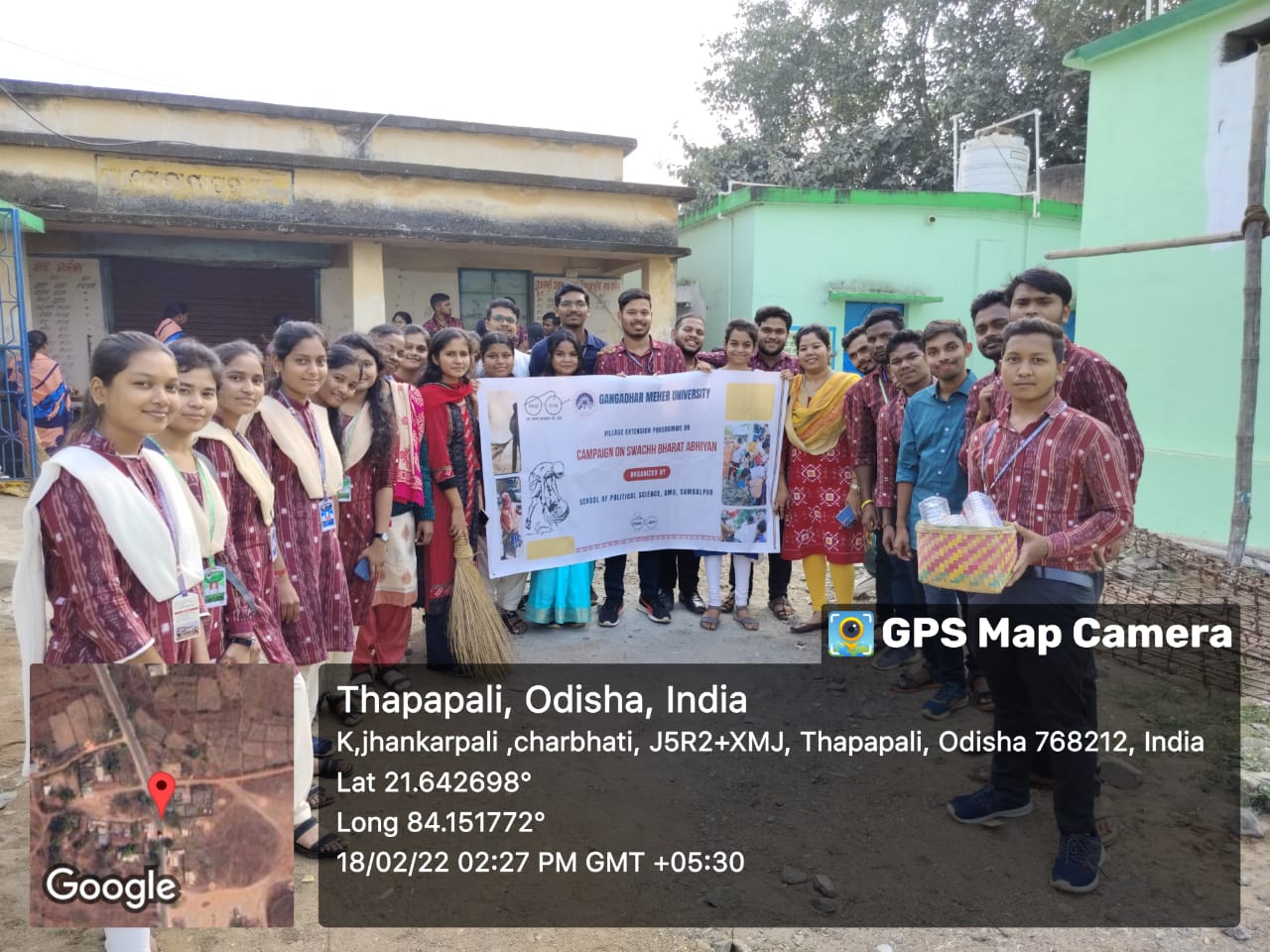 Date: 18/02/2022
Date: 18/02/2022 The program was organized to raise awareness about the Swachha Bharat mission. Students performed drama related to the mission's relevance. The drama's motto was "How the Swachha Bharat mission is helping to improve health, economic benefits, environmental benefits, and social inclusion." Not only did they organize the drama, but they also cleaned the village.
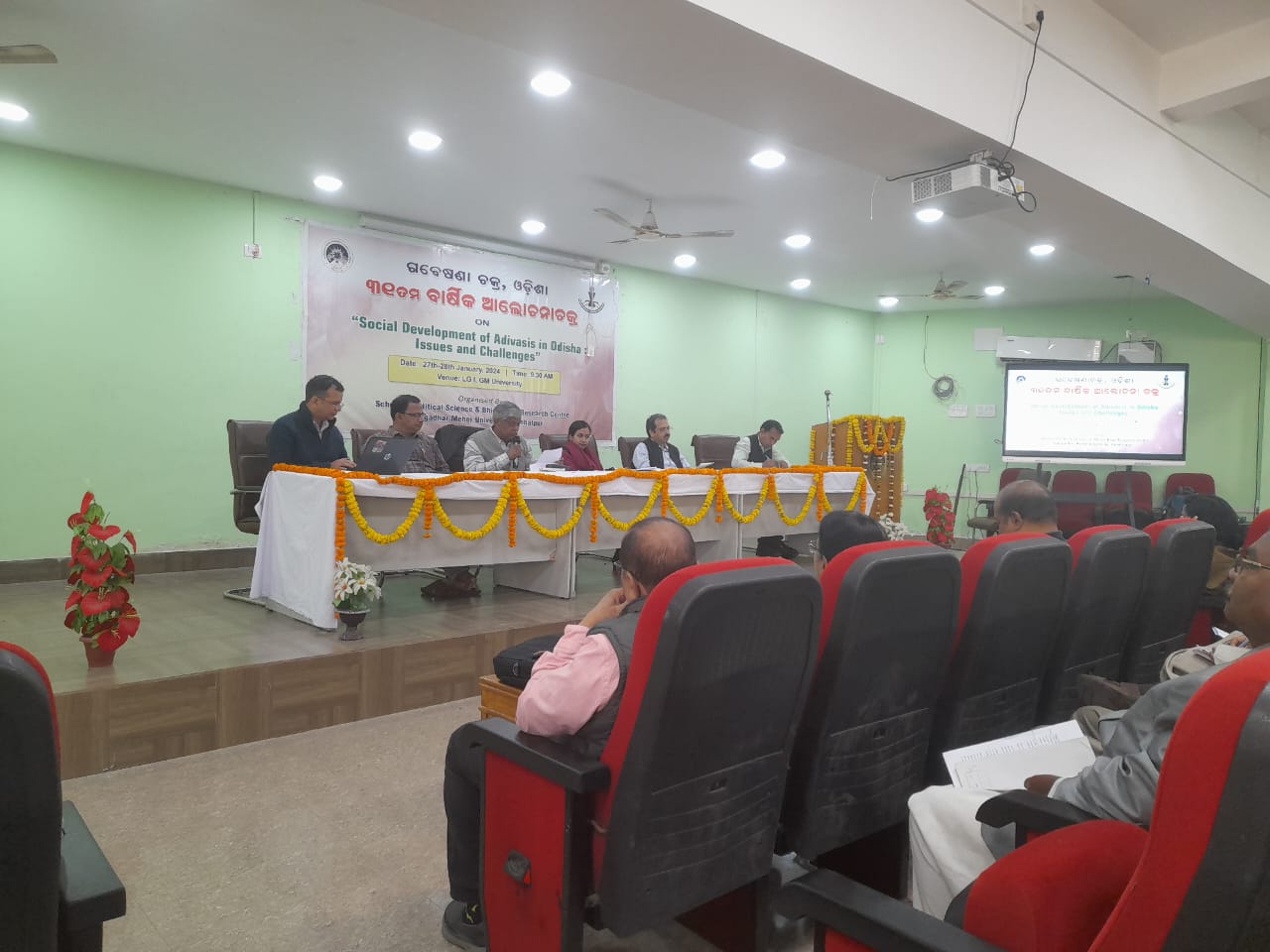 Date: 27/01/2024
Date: 27/01/2024 31st Gabesana Chakra National Seminar
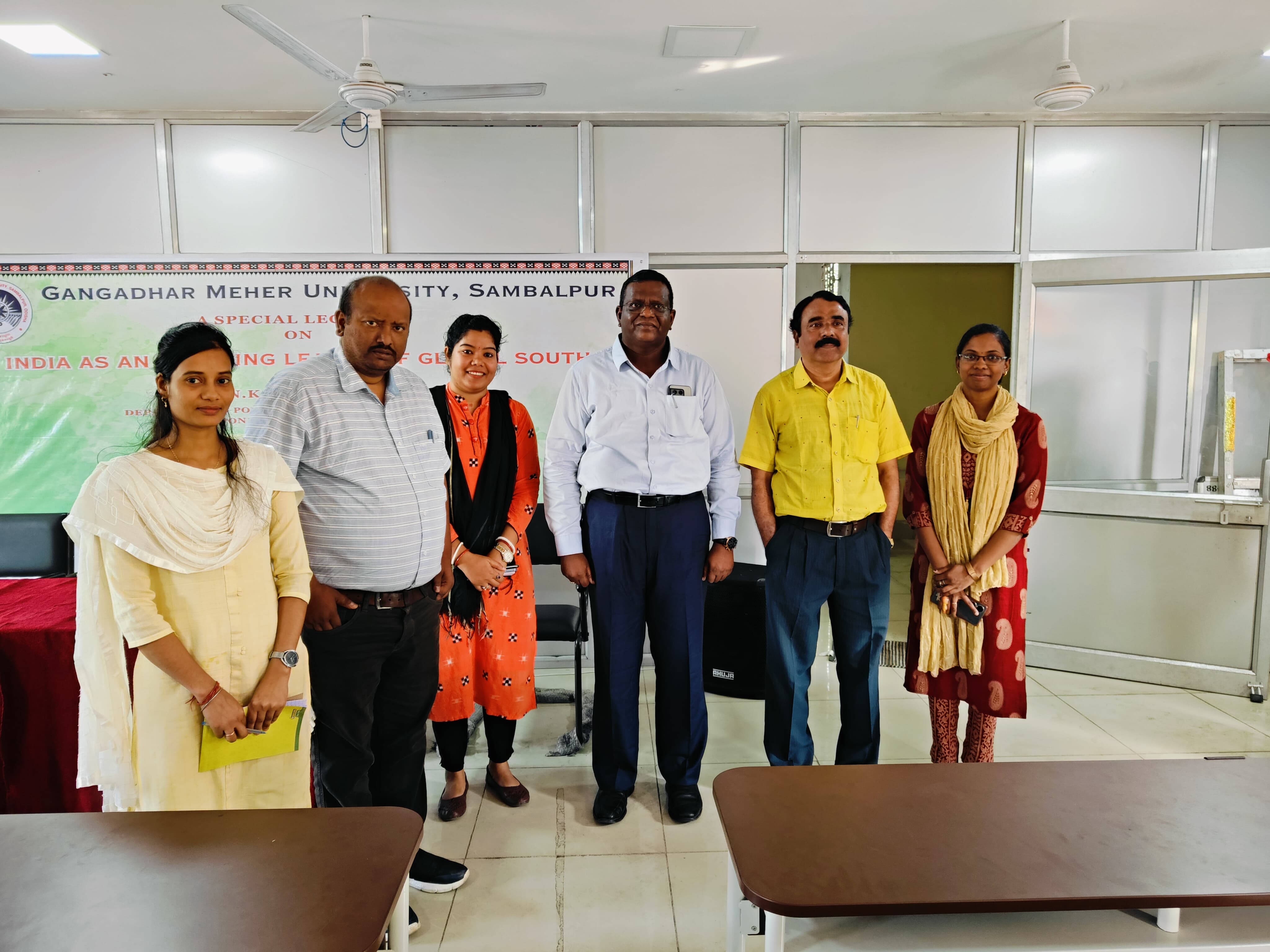 Date: 06/02/2024
Date: 06/02/2024 Special Lecture